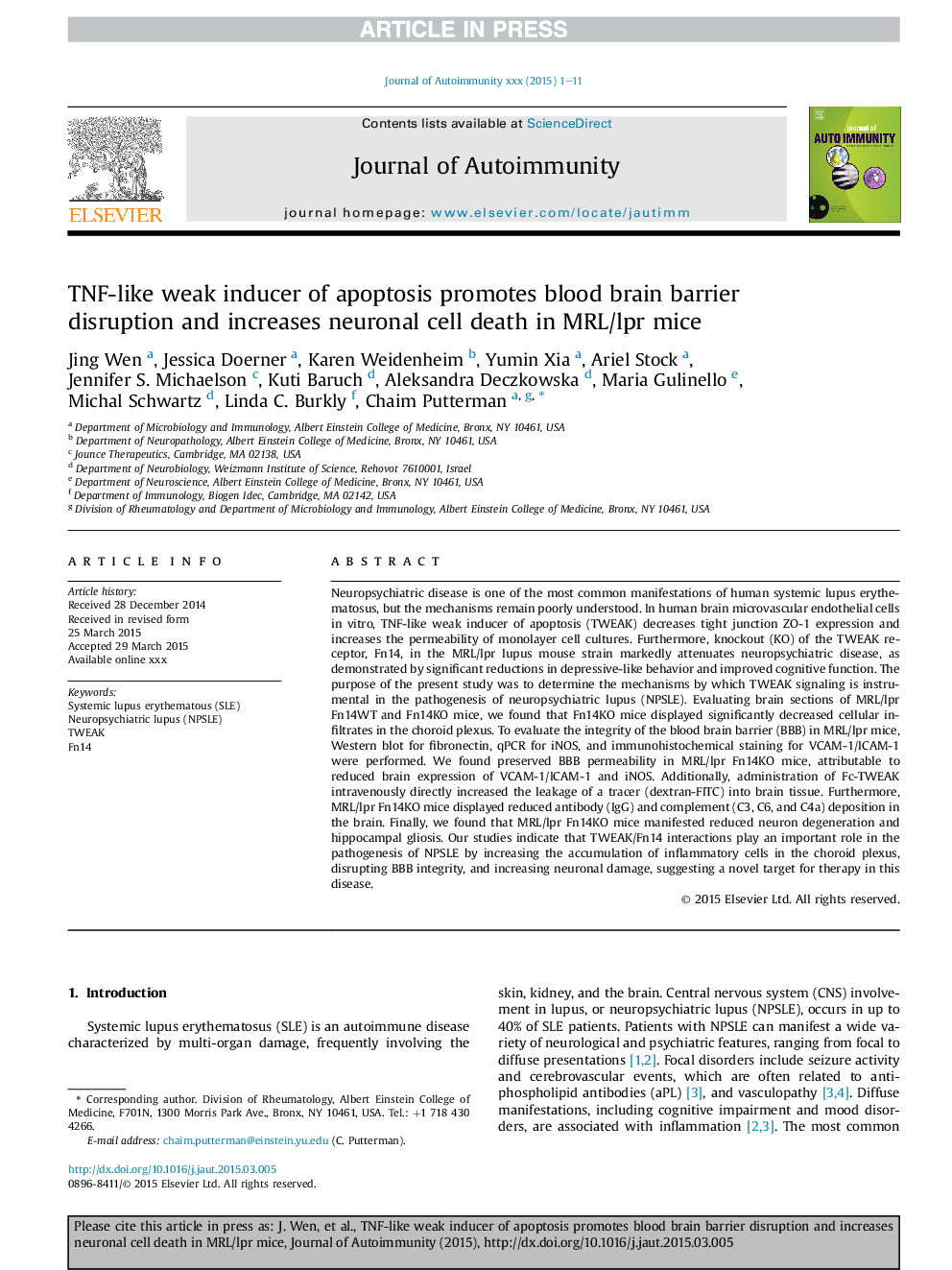| Article ID | Journal | Published Year | Pages | File Type |
|---|---|---|---|---|
| 6119149 | Journal of Autoimmunity | 2015 | 11 Pages |
Abstract
Neuropsychiatric disease is one of the most common manifestations of human systemic lupus erythematosus, but the mechanisms remain poorly understood. In human brain microvascular endothelial cells in vitro, TNF-like weak inducer of apoptosis (TWEAK) decreases tight junction ZO-1 expression and increases the permeability of monolayer cell cultures. Furthermore, knockout (KO) of the TWEAK receptor, Fn14, in the MRL/lpr lupus mouse strain markedly attenuates neuropsychiatric disease, as demonstrated by significant reductions in depressive-like behavior and improved cognitive function. The purpose of the present study was to determine the mechanisms by which TWEAK signaling is instrumental in the pathogenesis of neuropsychiatric lupus (NPSLE). Evaluating brain sections of MRL/lpr Fn14WT and Fn14KO mice, we found that Fn14KO mice displayed significantly decreased cellular infiltrates in the choroid plexus. To evaluate the integrity of the blood brain barrier (BBB) in MRL/lpr mice, Western blot for fibronectin, qPCR for iNOS, and immunohistochemical staining for VCAM-1/ICAM-1 were performed. We found preserved BBB permeability in MRL/lpr Fn14KO mice, attributable to reduced brain expression of VCAM-1/ICAM-1 and iNOS. Additionally, administration of Fc-TWEAK intravenously directly increased the leakage of a tracer (dextran-FITC) into brain tissue. Furthermore, MRL/lpr Fn14KO mice displayed reduced antibody (IgG) and complement (C3, C6, and C4a) deposition in the brain. Finally, we found that MRL/lpr Fn14KO mice manifested reduced neuron degeneration and hippocampal gliosis. Our studies indicate that TWEAK/Fn14 interactions play an important role in the pathogenesis of NPSLE by increasing the accumulation of inflammatory cells in the choroid plexus, disrupting BBB integrity, and increasing neuronal damage, suggesting a novel target for therapy in this disease.
Related Topics
Life Sciences
Immunology and Microbiology
Immunology
Authors
Jing Wen, Jessica Doerner, Karen Weidenheim, Yumin Xia, Ariel Stock, Jennifer S. Michaelson, Kuti Baruch, Aleksandra Deczkowska, Maria Gulinello, Michal Schwartz, Linda C. Burkly, Chaim Putterman,
